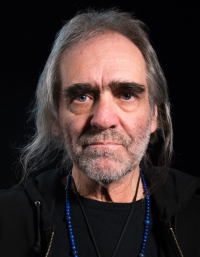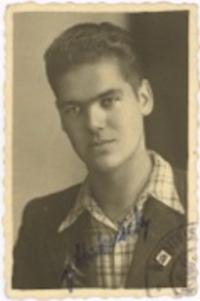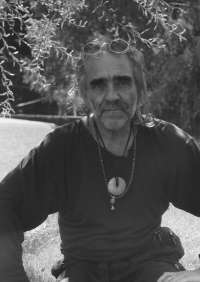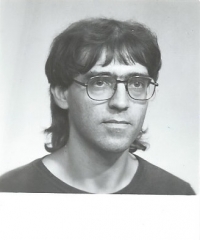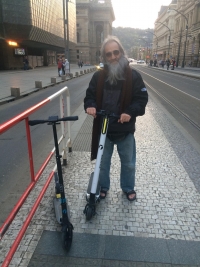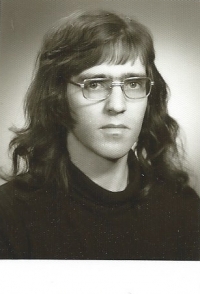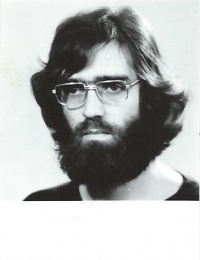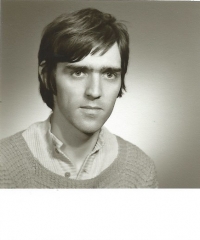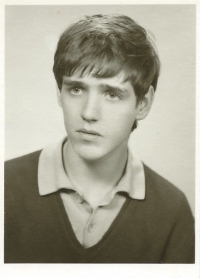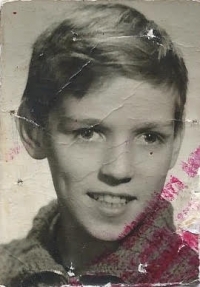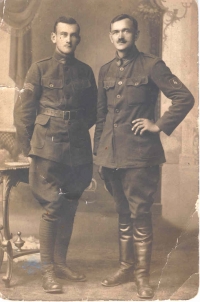May all the beings be happy!

Stáhnout obrázek
Vlastislav Matoušek was born on November 8th of 1948 in Truntov. When he was a pre-school child his parents would often leave him in Šedivec near Žamberk at his grandmother and grandfather who were leading a traditional rural life. After leaving elementary school in Trutnov he graduated from the třední školu elektrotechnickou in Jičín. He played guitar since he was fourteen. Soon he built his own bass and together with Vladimír Kaláb founded his first band the Preachers of Beat. After graduation he had been working in závody průmyslové automatizace and playing music. After the dramatic events of August 1968 in Trutnov Vlastislav developed a clearly anti-communist worldwiev. In 1973 Vlastislav decided to become a vegetarian. In 1974 he began to teach at primary school in Žacléř and for the first time he applied for ff uk obor music theory/hudební věda. In 1977 he was admitted and after his talent being recognised he was advised to study composition at HAMU. In June 1981 he was arrested by the Secret police. During the house search the police found volumes of samizdat publications in his flat and also the Charter 77 text and poems mocking the communist regime. He spent six difficult months in a detention facility and was sentenced to eighteen months in prison for sedition. In Bory prison he befriended Jiří Dienstbier and Václav Havel. In 1982 he had been released. He started working as a watchman and a cleaner at a construction site. He played with bands Relaxace or Máma Bubo. In 1987 he managed to resume his studies at HAMU. Since the anniversary of the occupation of Czechoslovakia by the Warsaw Pact forces on August 21st 1987 he has been attending the anti-government protests in Praha. In 1989 he was elated as the communist regime had fallen; he graduated from school and started his academic career. In 1995 the Japan Foundation supported his six-month study visit to Tokyo where he immersed in playing the shakuhachi flute. Vlastislav Matoušek is a leading Czech expert on ethnic music. He has been teaching, composing, meditating and performing.
